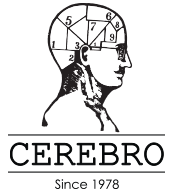Product Details
Oliver Cromwell born 1599 died 1658 Oliver Cromwell made his name as a radical Parliamentarian when he was elected to represent Cambridge City, first in the Short Parliament (April 1640) then in the Long Parliament (August 1640 through April 1660). From the outset the Long Parliament proved a hard taskmaster, refusing to authorize any funding until Charles I - who was seriously bankrupt and beholden to the Scots for the sum of ?850 per day - was brought to book. Charles was stripped of his power as Parliament took control of fiscal policy and placed the army and navy under their supervision. When war broke out in 1642, Cromwell came into his own, proving himself a natural soldier. Born in Huntingdon in 1599 to a relatively poor squirearchal family, Cromwell found religious zeal as a Puritan while studying at Sidney Sussex College, Cambridge. His faith influenced his appearance: he was conservative in his clothing and austere in composure; his commanding voice and fervour proved a trademark in parliament. But it was in the conduct of war that he excelled. Following Charles' failed attempt to arrest five MPs - among them Cromwell's relative John Pym - civil war ensued. Cromwell acted after losing the battle at Edge Hill to a superior Royalist cavalry. By adding 60 horses to the Roundhead cause, the Battle of Marston Moor (1644) became a Roundhead victory. After this event, Cromwell earned his nickname 'Ironsides'. The final Cavalier defeat came at Naseby in 1645 and Cromwell had a major part to play in the negotiations that followed. He was, however, accused by all sides of conspiracy and by 1648 civil war erupted once again when the Long Parliament was reduced to the Rump Parliament and Cromwell's army forcibly removed 110 MPs from the House. Cromwell's stature was confirmed at Preston (August 1648) when the New Model Army triumphed under his command. Thus his controversial career began. After the execution of Charles in 1649, he ordered the subjugation of Ireland, massacring civilians at Drogheda and Wexford, and the remaining population was constrained by the Act of Settlement in 1653. Scotland was invaded and the nobility forced to submit. Cromwell muzzled the press and defeated Leveller rebels. The Rump Parliament was defeated in another dissolution of Parliament in April 1653, and an oligarchy established with the creation of the Barebones Parliament (also known as the Nominated Parliament), which proved a failure. In response Cromwell further asserted his power and established the Instrument of Government, awarding himself the office of Lord Protector supported by a single-chamber parliament. At the same time, his expensive army and failed trade wars with the Dutch proved expensive. Despite himself Cromwell had re-established the monarchy in all but name and returned England to the unhappy days of Charles I's reign. Even so, his benevolent despotism was acceptable to a weary nation and went uncontested. Cromwell's death in September 1658 was the only close to this particular chapter and even though his son Richard was named as successor, Cromwell's Commonwealth did not succeed and monarchy was restored by 1660. this cigar label biography from www.bbc.co.uk/history
 View Cart {{shoppingcart.totalQuantityDisplay}} Item(s)
View Cart {{shoppingcart.totalQuantityDisplay}} Item(s)
 View Cart {{shoppingcart.totalQuantityDisplay}} Item(s)
View Cart {{shoppingcart.totalQuantityDisplay}} Item(s)
